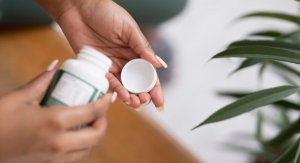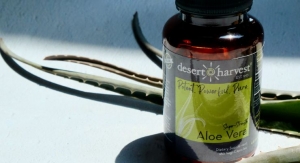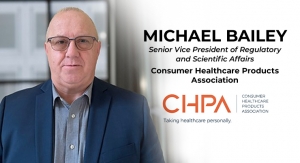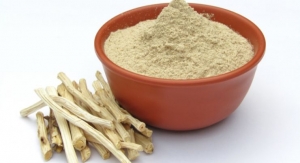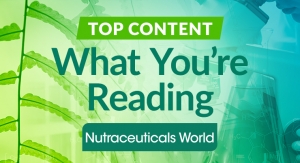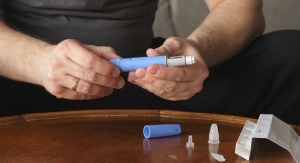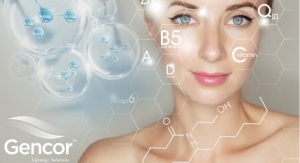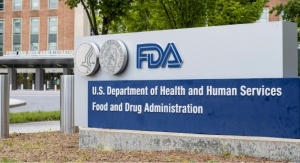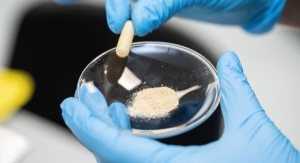By Sean Moloughney, Editor10.01.20
When we developed our 2020 editorial calendar in the summer of 2019, I remember thinking that immune health would be an important topic following a bad flu season. Of course, today, COVID-19 is the new context for everything, as the threat of the novel coronavirus persists in the foreground of each market and business development in the nutraceuticals world.
As of press time (mid-September), more than 200,000 people in the U.S. have died from COVID-19, and the worldwide death toll was approaching 1 million. Part of me fears we’re getting numb to numbers, but for comparison, when we went to press for our April issue (in mid-March), six months ago, there were 200,000 global cases reported.
At the same time, the crushing economic impact overall has been unprecedented. If there is a positive to pick out from all the turmoil, for this industry, it’s increasing dietary supplement usage among consumers—and I’d like to think improved public health as a result. According to a survey commissioned by the Council for Responsible Nutrition (CRN), 43% of supplement users reported changes to their supplement routines since the pandemic began; most have been adding more supplements to their health regimens. The survey data also indicated nearly all supplement users who changed their routines said they are likely to continue with their current habits moving forward.
Meanwhile, there’s been another growing practice that’s especially concerning. Scam products and fraudulent claims that target people who are desperate for treatment or preventive options has been, frankly, abhorrent to witness, even if it’s not unexpected. Responsible industry players have tried to distance themselves from the criminal actors, calling out con artists and their methods when possible. Everyone needs to be vigilant.
In the grayer spaces, there seems to be a tight-rope balancing act brands must walk when talking with consumers about the importance of nutrition and filling nutrient gaps to support immune health. The pandemic shouldn’t erase what was once legitimate structure/function language for immune health nutrients. Legal interpretation may be a subjective practice, and I understand a line needs to be drawn somewhere. However, there absolutely has to be space for dialogue about nutrition, which includes supplementation, and what it means for immune system function. Erik Goldman breaks this down very well in his column.
I think it’s clear that the future is very much being molded today, right now, by how we respond to the many challenges of our time. It can be difficult to stay focused so I hope this issue helps define some of those matters and motivate your response.
As of press time (mid-September), more than 200,000 people in the U.S. have died from COVID-19, and the worldwide death toll was approaching 1 million. Part of me fears we’re getting numb to numbers, but for comparison, when we went to press for our April issue (in mid-March), six months ago, there were 200,000 global cases reported.
At the same time, the crushing economic impact overall has been unprecedented. If there is a positive to pick out from all the turmoil, for this industry, it’s increasing dietary supplement usage among consumers—and I’d like to think improved public health as a result. According to a survey commissioned by the Council for Responsible Nutrition (CRN), 43% of supplement users reported changes to their supplement routines since the pandemic began; most have been adding more supplements to their health regimens. The survey data also indicated nearly all supplement users who changed their routines said they are likely to continue with their current habits moving forward.
Meanwhile, there’s been another growing practice that’s especially concerning. Scam products and fraudulent claims that target people who are desperate for treatment or preventive options has been, frankly, abhorrent to witness, even if it’s not unexpected. Responsible industry players have tried to distance themselves from the criminal actors, calling out con artists and their methods when possible. Everyone needs to be vigilant.
In the grayer spaces, there seems to be a tight-rope balancing act brands must walk when talking with consumers about the importance of nutrition and filling nutrient gaps to support immune health. The pandemic shouldn’t erase what was once legitimate structure/function language for immune health nutrients. Legal interpretation may be a subjective practice, and I understand a line needs to be drawn somewhere. However, there absolutely has to be space for dialogue about nutrition, which includes supplementation, and what it means for immune system function. Erik Goldman breaks this down very well in his column.
I think it’s clear that the future is very much being molded today, right now, by how we respond to the many challenges of our time. It can be difficult to stay focused so I hope this issue helps define some of those matters and motivate your response.



